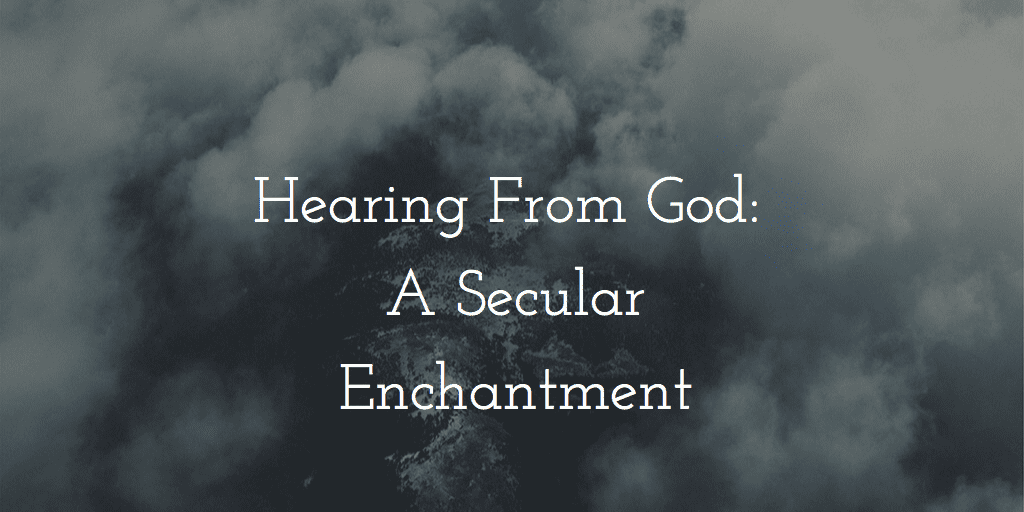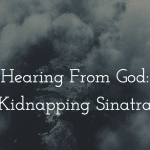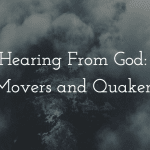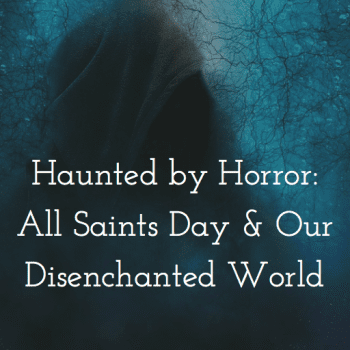“In those days, the Word of the LORD was rare, there were not many visions.” -1st Samuel 3:1
It would be nice if people saw that the world cannot be disenchanted, and that the choice before us is really a choice of enchantments. -Francis Spufford
“I don’t believe in God. I believe in Science.” -Nacho Libre
 After the 2011 Tsunami hit Japan, the London Review of Books reviewed an essay on the recurring problem that people in the coastal regions of Japan called “Hungry Ghosts”
After the 2011 Tsunami hit Japan, the London Review of Books reviewed an essay on the recurring problem that people in the coastal regions of Japan called “Hungry Ghosts”
The review is filled with fascinating stories of everyday, ordinary Japanese people stumbling into a world that was haunted – a world they really wished didn’t exist.
One story was about a guy named Takeshi Ono, who, two weeks after the Tsunami, drove to the coast with his wife and mother, and within a few hours of being there began acting like a possessed man, rolling in the mud, having to be forcibly held down by his wife and mother while shouting at them “You must all die! Everyone must die and everything be lost!.” And then pointing toward the ocean screaming, “There, over there! They’re all over there – look!”
For three days, every night as the sun went down, Takeshi would see people walking past him who weren’t there. Parents with their children, a group of young friends, a grandfather with his grandson and they would all just stare at him, dressed in their dirty, Tsunami-battered clothes and covered in mud.
Finally, under the threat of a divorce, his wife forced him to go see a Japanese priest who performed an exorcism of sorts, and he’s been back to his normal, not-seeing-ghosts-anymore-self, ever since.
I think it’s important to remember that this is taking place in Japan. The same place that gave the world Sony and Nintendo and sushi. This is not some Tibetan monastery where people spend their days praying, this is Japan and Ono is a construction worker who’s main flaw according to the LBR was that he was so “open and innocent (he was described as a Japanese kind of Mr. Bean) that the spirits were able to possess him.”
Open To Anything
In his watershed work, A Secular Age, The Canadian philosopher Charles Taylor opens his book with this haunting question: “How is it possible for people to not believe in God anymore?”
One of the big differences between us and our ancestors of five hundred years ago is that they lived in an “enchanted” world, and we do not; at the very least, we live in amuch less “enchanted” world. We might think of this as our having “lost” a number of beliefs and the practices which they made possible. But more, the enchanted world was one in which these forces could cross a porous boundary and shape our lives, psychic and physical. One of the big differences between us and them is that we live with a much firmer sense of the boundary between self and other. We are “buffered” selves. We have changed.
[The] process of disenchantment involves a change in sensibility; one is open to different things. One has lost a way in which people used to experience the world.
One of the common distinctions in a Secular Age is not that we no longer have ghosts and demons and angels and God, it’s that we are no longer open to them.
One of my favorite stories in the Bible comes from 1st Samuel, it’s a story of a young boy who grows up in the Temple with a priest. And the story begins by telling us that Samuel was growing up in a time when “The word of the LORD was rare”
Samuel is born in a time where people want to hear from God, but don’t.
And the turning point in Samuel’s life, really all of Israel’s history, is an old, overweight priest named Eli with bad eyesight and a dysfunctional family. Samuel wakes up one night to the sound of someone calling him, it’s just him and Eli in the Temple, so he does the math and goes to his boss and asks him what he wants.
Eli tells Samuel that he didn’t call him and that he should get back in bed (side note: I’ve got 5 kids under the age of 8 right now, you can’t tell me that Eli wasn’t thinking this was some ploy to stay up). This happens 2 more times before it dawns on Eli that this might be more than that late night hummus, and Eli says to Samuel the best advice I know for someone who wants to hear from God.”
Eli told Samuel, “Go and lie down, and if he calls you, say, ‘Speak, Lord, for your servant is listening.’
I know religious leaders well, I know the humility and courage this small act of ministry must have taken. If I was Eli, I would be tempted to say, “Tell God that He got the wrong room. The older, mature servant is listening in the next room.” But Eli doesn’t, instead he has the awareness that God will speak to whom God will speak, and that the only control anyone has over the voice of God is our ability to be present and listen.
Enlightenment and Enchantment
The ministry of Eli was to get Samuel to be open to the possibility that more might be going on than he had previously assumed. Samuel was working with the idea that if he heard something it had to come from the only other person there, Eli invited Samuel into a story of God who speaks
I want to be like Eli.
So back to the Japanese Demons and Charles Taylor…
Part of the challenge that we have in discerning God’s voice today is that it is such a struggle for us to even believe the possibility that God even exists. But while this might be a challenge intellectually, our emotions are still yearning for God, nothing satisfies us. We are filled with an aching longing desire.
I think Eli would say, “Listen up.”
C.S. Lewis opened up his professorship at Magdalene College in Cambridge asking a house packed full with students:
Do you think it all meant nothing, all the longing? The longing for home? For indeed it now feels not like going, but like going back. All my life the God of the Mountain has been wooing me…Do you think I am trying to weave a spell? Perhaps I am; but remember your fairy tales. Spells are used for breaking enchantments as well as for inducing them. And you and I have need of the strongest spell that can be found to wake us from the evil enchantment of worldliness which has been laid upon us for nearly a hundred years. Almost our whole education has been directed to silencing this shy, persistent, inner voice; almost all our modem philosophies have been devised to convince us that the good of man is to be found on this earth. And yet it is a remarkable thing that such philosophies of Progress or Creative Evolution themselves bear reluctant witness to the truth that our real goal is elsewhere. When they want to convince you that earth is your home, notice how they set about it. They begin by trying to persuade you that earth can be made into heaven, thus giving a sop to your sense of exile in earth as it is. Next, they tell you that this fortunate event is still a good way off in the future, thus giving a sop to your knowledge that the fatherland is not here and now.
C.S. Lewis believed that the choice wasn’t between enchantment or enlightenment, we are all under a spell, we are all open to something and closed to something else.
The choice we all have…is only and always… which spell do we want to be under?
This is the ministry of Eli, it is to tell the generation that is growing up in a time when “The word of the LORD is rare” that it just might be God you’re hearing from, open yourself up to the possibility that the world is not what you thought it was and that whisper might not be limited to who is in the room with you.
The universe doesn’t fit into a test tube and the world has always been, and still is, enchanted.
So speak LORD, your servants are listening.










